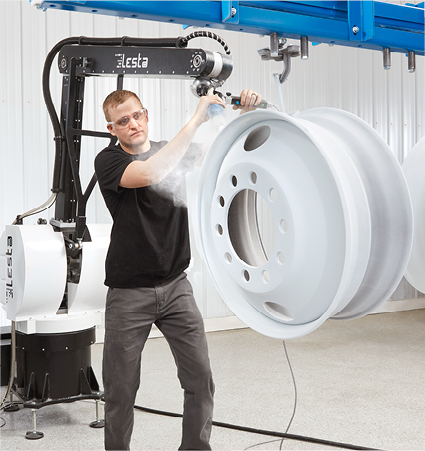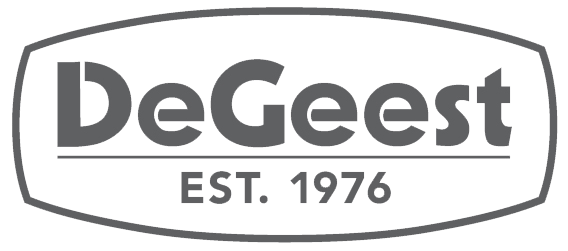LestaUSA Self-Learning Robotic System Transforms the Wheel Refinishing Industry

SHARE WITH A COLLEAGUE
Engineering and application expert walks through how DeGeest’s automation solution can increase throughput and employee retention.
With automation technology gaining popularity, DeGeest is committed to staying relevant and competitive. Host of DeGeest’s Manufacturing a Stronger Standard, Derek DeGeest, sat down with Brad Ruppert, DeGeest’s applications specialist and engineering manager, to discuss the new robotic solution they created for the wheel refinishing industry.
Ruppert, who just recently returned from a recent install, visits customers in person and performs the installation, software coding, and training. During the most recent training, Ruppert had the applicators run through installation for five different styles of rims for a total of 80 rims during an eight-hour session, beating their throughput on a normal day. This sort of hands-on, results-oriented training gives employees confidence in the tech and leaves them feeling extremely satisfied — and more importantly, “bought-in” — with the upgrades.
The biggest difference in this product’s development, when compared to others, is that DeGeest couldn’t add the robot to the existing system due to the manual, laborious nature of the process. Instead, Ruppert detailed how the team tackled creating this customized system, which included:
• Learning the rim application process
• Determining the amount of time it took to manually complete the service
• Noting the structural inhibitors of the building
• Building the robot system based on all of the above factors
For this customer in particular, DeGeest was able to complete their planning process, build the robot, and train the staff within only five days. Now, the shop is running “199 rims in a 10-hour workday with two people.”
In an industry that usually requires working through weekends and holidays, this type of technology is a game changer, improving the work environment in many ways, such as increased work-life balance, decreased turnover, and higher throughput.
Interested in learning more? Look for new episodes coming out each week on Spotify and Apple Podcasts.
